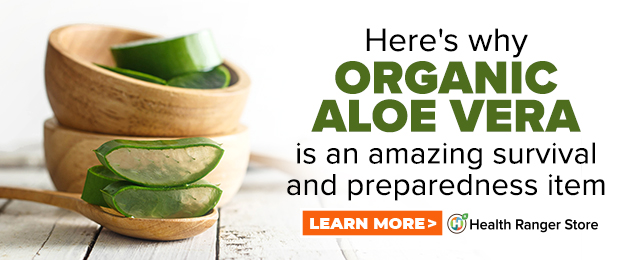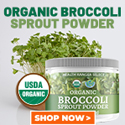
Eggs - Consume this natural protein source (Opinion)
Thursday, February 24, 2011 by: Shona Botes
Tags: eggs, protein, health news
- BEWARE: USDA allows genetically engineered vaccines to infiltrate organic food production
- LYME DISEASE on the RISE raising suspicion it's still part of U.S. military bioweapons program gaining traction for Lyme Disease PLANDEMIC
- Sodium-ion battery BREAKTHROUGH offers a faster, safer, and more sustainable revolution in energy storage
- Breaking the aging code: How diet shapes longevity from breakfast onward
- Is Del Bigtree leaving MAHA? Bigtree blasts the MAHA report's shocking silence on vaccine failure and vaccine injury
- Pat McGrady Sr. reveals DMSO’s medical potential and the story of its persecution
- Poll: Overwhelming majority of Americans demand Big Pharma ACCOUNTABILITY for vaccine injuries
- Methylene blue’s remarkable potential for neuroprotection and beyond
- Trump's tariffs REINSTATED: Judicial tug-of-war exposes deep rift in America's trade policy
- Supreme Court curbs judicial overreach on NEPA reviews, backs infrastructure projects
- Holistic eye care and ancient practices challenge surgery’s reign in cataract treatment
- Trump Admin yanks $700 MILLION in funding from Moderna, staving off another deadly mRNA jab and a combo H5N1/flu shot stab
- Trump orders federal hiring overhaul, replacing DEI with merit-based system
- Trade truce in danger as Trump accuses China of violating deal, talks hit roadblock
- Revolutionizing health: The enduring impact of Murray and Pizzorno’s “Encyclopedia of Natural Medicine”
- Israel accepts U.S.-brokered Gaza ceasefire, but Hamas rejects terms as insufficient for lasting peace
- LexisNexis DATA BREACH showcases security risks of corporate data warehouses
- Antifa attacks Christians in Seattle: FBI investigates “targeted violence” amid free speech clashes
- Globalists call for “celebration” of plunging human fertility as war against humanity accelerates
- HEALTH SECRETS: How to Instantly Block MSG Toxicity Using Natural Substances (and the secret of Methylene Blue)
- The 20 deadliest sugar-loaded foods and how to replace them before they kill you
- WAR ON COGNITION: The Coordinated Assault on Your Brain and How to Defend Yourself Against Every Attack
- WHO Pandemic Treaty sparks sovereignty concerns amid secretive voting and U.S. withdrawal
- Toxicologist reveals four simple ways to slash microplastics in your drinking water
- Amazing microscopy photos reveal how freezing crystals attempt to mimic electronic structures they are touching
- Trump signs controversial Take It Down Act amid concerns of censorship and government overreach
- MSG EXPOSED: Hidden Neurotoxins Found in Groceries, Snacks and Popular Fast Food Menus
- RED ALERT: Nuclear War Between India and Pakistan Could Trigger Global Catastrophe… full RISK ANALYSIS
- An inexpensive and forgotten superfood: BEANS are key to reversing chronic disease
- This overlooked class of food additives is linked to Crohn's disease and cancer
- Vitamin C: A potential game-changer in cancer treatment
- Biden administration targeted mask and vaccine opponents as "terrorists," new docs reveal
- The dark truth behind Ozempic and Wegovy: Big Pharma's profit-driven gamble with your health
- Hidden food chemicals in many “health” foods linked to gut damage, cancer, and metabolic disorders
- Microsoft exposed for SILENCING EMAILS that discuss genocide in Gaza, while fueling Israel's war machine with AI and cloud tech
- Biden regime weaponized terror watch lists to silence COVID mandate dissent, documents expose
- Big Pharma's Dirty Secret: How Prescription Drugs Are Starving Your Body of Essential Nutrients
- RED ALERT: Nuclear War Between India and Pakistan Could Trigger Global Catastrophe… full RISK ANALYSIS
- WAR ON COGNITION: The Coordinated Assault on Your Brain and How to Defend Yourself Against Every Attack
- Singapore's draconian vaccine mandate: Citizens face jail time for refusing FORCED medical procedures that do HARM
- Head of L.A. Port warns of incoming plunge in U.S. supply chain, empty shelves and inventory depletion in 5-7 weeks
- JESUS NEVER SPOKE ENGLISH: Historical facts on why the Bible you’re probably reading has been altered, redacted or hidden from much of its original meaning
- MSG EXPOSED: Hidden Neurotoxins Found in Groceries, Snacks and Popular Fast Food Menus
- Why All Government Officials and Big Tech CEOs Who Engage in Systematic Viewpoint Censorship Must Be ARRESTED, Prosecuted, and Sentenced to Life in Prison
- HEALTH SECRETS: How to Instantly Block MSG Toxicity Using Natural Substances (and the secret of Methylene Blue)
- Rubio exposes Biden's surveillance of American dissent: Outrageous free speech violations
- Why the Trump administration will FAIL, and America’s economy, military and industrial base will COLLAPSE if Trump’s weaponized tariffs aren’t halted
- Trump Unleashes Economic Doomsday on America with "Secondary Sanctions" that BLOCK all Exports from China, with NO exceptions!
- BitChute CEO warns U.K. heading toward “China-style internet censorship”
- Landmark study of 85 million reveals shocking surge in heart attacks, strokes, and sudden death following the notorious COVID-19 jab
- Globalists call for “celebration” of plunging human fertility as war against humanity accelerates
- URGENT REPORT: The China Import Embargo - What to Stockpile Now Before America Runs Out
- EU's digital censorship SURTAX and vaccine "misinformation" CRACKDOWN targets vaccine truth seekers in Orwellian push for conformity
- Silent catastrophe: COVID-19 vaccines linked to plummeting fertility rates, Czech data reveals
- Red Cross issues warning to stop blood plasma donations from vaccinated people
- Scientists confirm: GENIUS brain function can be spontaneously unleashed in humans without any apparent cause
- EPA advisor admits the agency is funneling billions to climate groups ahead of Trump’s return to White House
- HYSSOP: What research reveals about the health benefits of this ancient holy herb
- Two containers with completed ballots fall out of truck in Florida
- Newly released JFK files reveal Pentagon's role in creating Lyme disease and covid in the same lab
- Mike Adams releases country western hit single: Goin’ Back in Time is Comin’ Home
- Global leaders unite to clamp down on “misinformation” with UN-backed Cascais Declaration
- BREAKING: 2025 NDAA authorizes mandatory military draft of WOMEN across America… as Pentagon pursues global NUCLEAR war with both Russia and China at the same time
- I Want My Bailout Money – new song released by Mike Adams
- Michael Yon warns of a ZIONIST TAKEOVER in Trump’s second administration
- BOMBSHELL: DNA testing kits are a SCAM to develop ethnic-specific bioweapons
- Ozempic and Wegovy weight loss drugs are injectable LIZARD VENOM PEPTIDES that may unleash a devastating wave of organ failure… side effects align with symptoms of SNAKE BITES
- The Health Ranger releases “Vaccine Zombie” song and music video, using AI-animated zombies for the music video
- These 13 countries just signed an agreement to engineer a global FAMINE by destroying food supply
- Israeli soldiers accused of even more torture and abuse in the West Bank
- RFK Jr. clears key hurdle: Sen. Susan Collins backs controversial HHS nominee, signaling a new era for health policy
- Sermon 30: How Jesus reveals Caesar’s FAKE CURRENCY and FALSE AUTHORITY
Eggs are an excellent source of protein and are also low in calories, with an average size egg providing only 70 to 80 calories. They also contain choline, which is an important nutrient for healthy brain functioning, and it also helps to reduce inflammation and regulate the cardiovascular system. Two large eggs can provide up to 252 mg of choline, provided that the yolk is eaten, as this is where it is found.
Studies have shown that eating whole eggs may also help to lower the risk for heart attacks and strokes, as the type of protein found in eggs help to prolong the time it takes for fibrinogen (a protein present in our blood) to be converted to fibrin.
Eggs may in fact contain more lutein than most green vegetables. This is a carotenoid which is thought to assist with the prevention of age-related macular degeneration and cataracts. The form of lutein in eggs is more easily absorbed by our bodies than that found in green vegetables as well. Zeaxanthin is also found in eggs, which can also assist with the prevention of macular degeneration.
These eggceptional wonder foods are also high in B-vitamins, iron and folate/folic acid. Folate is an especially important nutrient for pregnant women, as it helps with the formation of red blood cells and also plays a part in the formation of genetic material in all parts of the body. They are also good for hair and nails, as they contain sulphur and vitamin B12.
Eggs are one of the few foods which contain a natural form of vitamin D. They may also assist in the prevention of breast cancer. One study showed that women who consumed an average of six eggs a week were able to lower their risk of contracting breast cancer by around 44%.
Having eggs for breakfast may also be able to contribute to healthy weight loss, as they tend to make one feel full for longer.
Eggs should always be bought from truly organic or free-range sources, as these have far higher nutritional value than normal store-bought eggs. These eggs contain far more omega-3, which helps to increase our HDL (good) cholesterol levels while decreasing our LDL (bad) cholesterol levels. Omega-3 is also good for helping to reduce high blood pressure. Eggs containing canola of any sort should always be avoided.
Once home, your eggs should be refrigerated to help retain their freshness. Do not store them in the door, as they will be exposed to heat each time the refrigerator is opened. Store them with the pointed end downwards. Keep them in their original container to prevent them from absorbing any other food odours or moisture.
This said, this natural food source is an eggcellent and affordable way to provide many of the proteins, vitamins and minerals that your family needs.
Sources:
http://www.brighthub.com/health/alternative-...
http://www.whfoods.com/genpage.php?tname=foo...
http://www.medicinenet.com/script/main/art.a...
http://www.healthdiaries.com/eatthis/10-heal...
http://ohioline.osu.edu/hyg-fact/5000/5553.h...
About the author
Shona Botes blogs about green living, budgeting, saving money, natural remedies and humour (which is often combined with the abovementioned topics). Her spare time is spent tending to her organic herb garden, cycling and engaging in photography.Her blog may be viewed here
Some of her photography work may be viewed here
Other articles written by her may be viewed here
Eggs at FETCH.news
Get independent news alerts on natural cures, food lab tests, cannabis medicine, science, robotics, drones, privacy and more.
Take Action: Support Natural News by linking to this article from your website
Permalink to this article:
Embed article link: (copy HTML code below):
Reprinting this article:
Non-commercial use OK, cite NaturalNews.com with clickable link.
Follow Natural News on Facebook, Twitter, Google Plus, and Pinterest
Science News & Studies
Medicine News and Information
Food News & Studies
Health News & Studies
Herbs News & Information
Pollution News & Studies
Cancer News & Studies
Climate News & Studies
Survival News & Information
Gear News & Information
News covering technology, stocks, hackers, and more



"Big Tech and mainstream media are constantly trying to silence the independent voices that dare to bring you the truth about toxic food ingredients, dangerous medications and the failed, fraudulent science of the profit-driven medical establishment.
Email is one of the best ways to make sure you stay informed, without the censorship of the tech giants (Google, Apple, Facebook, Twitter, YouTube, etc.). Stay informed and you'll even likely learn information that may help save your own life."
–The Health Ranger, Mike Adams












































